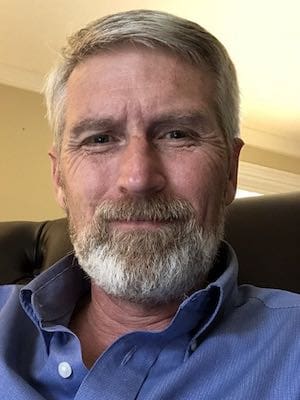Think back to April 19, 2013.
An entire region in Boston was frozen in place as police combed the area for marathon bombing suspect Dzhokhar Tsamaev. Logan International Airport was open, but nothing else moved.
The transit system, schools, businesses, airspace over the city, the Red Sox game, all closed or postponed. People remained in their homes. Fear gripped the city until the suspect was apprehended.
Now you have an idea of what life is like in Liberia.
Public gatherings are off-limits. Schools are closed indefinitely. A curfew is in place in Monrovia from 9 p.m. to 6 a.m. Many government agencies have ceased to function. Hospitals are closed.
In fact, health workers are afraid to treat patients of any kind, causing people to die from conditions unrelated to Ebola.
The neighboring borders are all closed, including the Freeport of Monrovia. Most airlines have suspended flights into and out of Roberts International Airport.
One of the largest slum areas of Monrovia, West Point with a population of 50,000, is now completely quarantined by the government.
This is all in response to more than 1,400 deaths that Ebola has caused, the majority being in Liberia.
In a country where the unique Liberian handshake is as cultural as a Southerner offering a guest something to drink, Liberians are discouraged and afraid to touch.
The new norm is hand-washing stations placed in front of all public buildings.
In a country where the average Liberian lives on less than a dollar a day, the interruption in commerce has had a devastating effect on people’s ability to provide food for themselves and their families.
Thus, a sidebar issue of Ebola is hunger. When people become hungry, they can become desperate.
The pre-civil war race riots of April 1979 occurred because of the rise in the price of rice.
Already, the price of rice in Liberia has risen from $17.50 to $18 for a 25-kilogram bag. Because rice is a staple food in Liberia, any rise in its price is cause for concern.
To make matters worse, Liberians have been told they can no longer eat bush meat or sell it in the market place. It is suspected that Ebola was transmitted from monkey meat.
Many rural people rely on bush meat as a supplement to their diet. Not only is this a loss of food, it is also a loss of culture. Imagine telling many in our culture they cannot deer hunt.
“The value of the culture of the Liberian people is being taken away by Ebola,” Faliku Dukuly says.
Dukuly, who spent a year studying at Mercer University and is currently a college student in Monrovia, says, “Everyone is feeling the pain of the disease because sickness does not pick and choose.” The Liberian way of life is currently on hold.
Dukuly says that given the choice many would choose war over the hardships of Ebola.
“You can hear and see where gunfire is coming from. But if you sit beside someone in a taxicab, you have no way of knowing if he or she is carrying Ebola.”
While a person must come in direct contact with bodily fluids such as blood, urine or vomit to be infected, a sick person can spread and infect others even when people are taking precautions.
War took a lot from the Liberian people. One out of every 12 people died. The country lost a generation of education, trade and exchange with the international community. Many of the atrocities committed during the war are unspeakable.
While the people are resilient, they are also fragile. Their culture and their faith have remained as a safety net. Ebola now threatens both again.
In 1995, during a lull in the civil war, with Monrovia surrounded by rebel fighters, I preached to a war-weary congregation at Second Providence Baptist Church.
Within six months of my departure, both the pastor and associate pastor were dead. The war lasted another eight years.
Last December, I returned to Second Providence Baptist and was reminded that 14 years of war could not destroy the faith of these people.
Like Job, they can say, “Though [God] slay me, yet will I trust in him.” (Job 13:15).
The people’s faith is being tested again by disease, but it will not die. However, it is up to us to help them all we can.
While they cannot touch each other, we can still touch them with caring actions.
 Michael Helms is pastor of the First Baptist Church in Jefferson, Georgia. A version of this article first appeared on his blog and is used with permission.
Michael Helms is pastor of the First Baptist Church in Jefferson, Georgia. A version of this article first appeared on his blog and is used with permission.
Editor’s note: An EthicsDaily.com news article about a report on the situation from Liberia Baptist Theological Seminary’s president Richard Wilson is available here.

